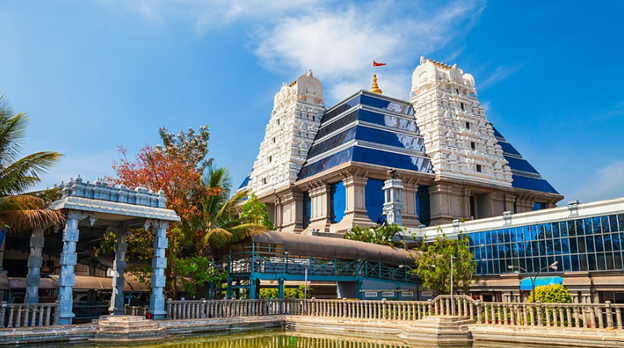New Delhi
The Supreme Court delivered a split verdict on review petitions challenging its May 16, 2025 judgment in favour of the Bengaluru chapter of the International Society for Krishna Consciousness (ISKCON) regarding the management of its Bengaluru centre, rejecting claims from the Mumbai unit.
A two-judge bench comprising Justices J.K. Maheshwari and Augustine George Masih differed in their opinions. Justice Maheshwari allowed the plea for an open court hearing and issued notices to the parties, while Justice Masih dismissed the review petitions, stating that the petitions lacked merit and showed no apparent error warranting reconsideration. Given the divergent views, the bench referred the matter to the Chief Justice of India for further directions.
The original May 16, 2025 judgment had declared that the Bengaluru ISKCON temple belonged to the ISKCON Society Bengaluru, registered under the Karnataka Societies Act. The court observed that none of the land allotment documents or correspondence indicated that Madhu Pandit acted as president of the Bengaluru branch of ISKCON Mumbai. In fact, all documentation, including applications for land allotment and exemptions under the Urban Land Ceiling Act, explicitly referenced ISKCON Bengaluru.
The Supreme Court also set aside the 2011 Karnataka High Court ruling that had recognized the property as belonging to ISKCON Mumbai. Justice Abhay S. Oka, in the earlier judgment, had noted that the High Court’s finding was contrary to the documentary evidence and therefore erroneous.
In 2011, the apex court had allowed the Bengaluru unit to manage day-to-day operations while restricting policy decisions and the creation of financial liabilities. The Bengaluru chapter, established in 1978, has since continued managing the centre, which is a prominent institution within the global ISKCON organization founded by A.C. Bhaktivedanta Prabhupada.
The Supreme Court’s latest verdict emphasizes documentary evidence in property disputes within religious institutions, leaving the final resolution pending further directions from the Chief Justice.

